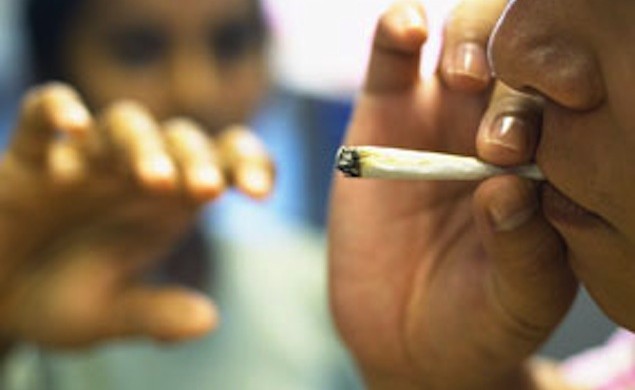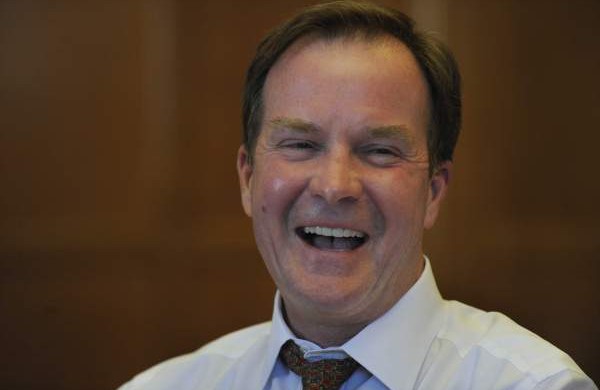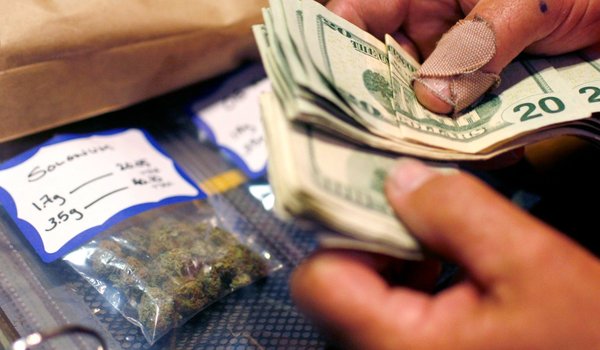
Nov 19, 2014 | Michigan Medical Marijuana Act, Michigan Medical Marijuana Association
DEA: “Prescription Drug Abuse is the Nation’s fastest-growing drug problem”
By Michael Komorn
According to figures released by the DEA during their House Appropriations Meeting on April 12, 2013 (during which they asked for roughly $3,000,000,000 in Federal Funding for FY 2014), an estimated 38,329 individuals died of an unintentional overdose of prescription drugs in 2010. ”The equivalent of one death every 14 minutes.” The DEA did not mention that in 2010, according to an article in the New York Times, ”1.64 million people were arrested for drug violations. Four out of five arrests were for possession. Nearly half were for possession of often-tiny amounts of marijuana.” In fact, the DEA failed to mention many figures that seem quite important when delivering a thorough, honest report:
1) The price of cocaine has dropped nearly 74% in the past 30 years. If supply has been going down due to major busts, wouldn’t prices go up? In fact, Marijuana was the only drug whose price went up over the same period.
2) One person is arrested for Marijuana every 42 seconds. In the time it has taken me to link the articles in this post, 4 people were arrested somewhere in the U.S. for Marijuana.
3) “Processing each of the roughly 85,000 arrests for drug misdemeanors in New York City (in 2011) cost the city $1,500 to $2,000. And that is just the cost to the budget. Hundreds of thousands of Americans, mostly black and poor, are unable to get a job, a credit card or even an apartment to rent because of the lasting stigma of a criminal record for carrying an ounce of marijuana.”-Harry Levine, Sociologist at Queens College of the City University of New York
4) Studies at the RAND Corporation estimate that if Marijuana were legal, Mexican Cartels would lose about a fifth of their annual income.
5) Almost one in five inmates in state prisons and half of those in federal prisons are serving time for drug offenses.
6) TOTAL DOCUMENTED UNINTENTIONAL DEATHS BY OVERDOSE OF MARIJUANA (ALL TIME)= ZERO
The statistics about prescription drug overdoses really stuck with me. Medical Marijuana Patients enter the court room for marijuana charges and are treated like violent criminals. Marijuana, a substance that 25 million people in the US smoke illegally. a substance that 63% of the citizens of Michigan voted in favor of making available to sick people, giving them an option to the dangers of prescription drugs when considering treatments for the pain associated with their debilitating disease.
A substance that Doctors around the world are finding has more and more health benefits than we ever imagined. But we still see Judges sit on the bench playing doctor by telling people what kind of medications they can use. Police continue to arrest people for small amounts every minute. Prosecutors threaten Doctors with criminal charges before they give testimony as to why they recommended a specific patient try medical marijuana. It is absolute madness, an insult to the citizens of Michigan, and to the members of the program who are simply looking for a way to better their quality of life.
Call Michigan Medical Marijuana Expert Michael Komorn at (800) 656-3557 for a free consultation today.

Nov 19, 2014 | Michigan Medical Marijuana Act
Medical Marijuana Laws Do Not Increase Teen Use
By Michael Komorn
Opponents of medical marijuana have repeatedly cited that if enacted, medical marijuana laws will impact the safety of their teens. The logic goes that if medical marijuana laws are passed, more teens will view the use of marijuana as ok, and will have easier access to the drug. A study by Montana State University, University of Oregon, and University of Colorado looked at how the passage of medical marijuana laws in 13 different states between 1993-2009 impacted levels of teen use. The study concluded that states with a medical marijuana program did not increase teen use, and that in some of those states, use actually declined. To read more about the study, click here.
If you ask teens today what is easier to obtain, marijuana or alcohol, almost every one of them will say marijuana. Though this is anecdotal evidence, it is not incomprehensible. When substances are regulated and only sold at licensed vendors, there are more barriers that teens must cross in order to obtain that substance, i.e. alcohol. Drug dealers do not card your teen, and may even entice your teen into dealing themselves by flaunting fancy clothes, shoes, and accessories they were able to purchase as a result of dealing. There are many hurdles yet to overcome to change how our nation views and deals with marijuana, but studies like the one out of these universities are continually showing that regulation of the drug works best to keep the drug out of teens’ possession, while generating revenue for the states instead of dealers on the street.

Nov 19, 2014 | Michigan Medical Marijuana Act
Michigan Attorney General Bill Schuette Obsessed with Marijuana
By Michael Komorn
This past April, seven Michigan Representatives led by Rep Jeff Irwin (D-Ann Arbor) introduced House Bill 4623, which would reduce the penalties for those caught with 1 ounce or less of marijuana. First time offenders would face a fine of $25, second offenses would carry a $50 fine, and a $100 fine would be levied for subsequent offenses. When asked about our prohibitionist policy toward marijuana, one of the members on the bipartisan committee, Representative Mike Shirkey (R), had this to say, ”The data is clear, we’re spending a lot of money, a lot of energy and a lot of resources in Michigan and across the nation to try to accomplish something that, frankly, we’ve failed at.”
Michigan currently has 128,441 active registered qualified patients and 26,875 active registered primary caregivers. There have also been 402,688 applications submitted to the Licensing and Regulatory Affairs office since April of 2009. Even with a patient or caregiver card, members of the medical marijuana program continue to be arrested and thrown into the criminal Justice System. Bill Schuette, the current Attorney General and leading law enforcement agent in Michigan remains ardently opposed to any measure that would lessen the punishment for the possession of any amount. According to Schuette, ”We should not go down this road of legalizing drugs…It exposes young kids, children, to ever more potent drugs use, and I think that’s not good for the in the future.”
Since he was elected in 2010, Schuette has issued 14 Opinions, 4 of which have been about Medical Marijuana. Aside from issuing the opinions (all of which have been anti-medical marijuana), Schuette has hosted seminars for law enforcement across the state. When my office inquired whether I could sit in on one, I was told they were for police and local government officials only. At these seminars, Schuette instructed officers to arrest patients, confiscate any medical marijuana, and let the courts decide whether a crime had been committed. The AG went on further to explain that if a police officer returned the seized cannabis to the patient or caregiver, they themselves could be charged with the felony offense of delivery of a schedule one controlled substance.
It is unfortunate that the political landscape for the Michigan Medical Marihuana Act finds the attorney general, the leading law enforcement agent of the state, as such an obstructionist for the implementation of the voters initiative of 2008. His opposition to the law passing was well publicized when he was acting as the spokesperson for Citizens Protecting Michigan’s Kids. Despite his arcane and illogical arguments, Michigan voters overwhelmingly passed the Michigan Medical Marihuana act by a 63% margin, totaling 3,008,980 votes. Never in the history of Michigan elections had more votes been cast. Many of the issues that exist in the implementation have been perpetuated by his failed policy of viewing the MMMA as a public safety issue instead of a public health issue.
Michigan voters should take heed of the failed implementation of the MMMA, understand where much of the blame should be directed, and hope for a more rational approach from our next candidates who wish to serve the People of the State of Michigan.
Examples of rational approaches taken by other attorney generals in implementing the desire of their citizens to whom they serve can be found here:
Oregon Attorney General
California Attorney General
Colorado Attorney General
To read each of Bill Schuette’s opinions on the Michigan Medical Marijuana Act, click the links below.
1) Smoking marihuana is prohibited in public places
2) Return of marihuana to patient or caregiver upon release from custody
3) Medical Marihuana Act prohibits the collective growing or sharing of marihuana plants.
4) Application of Michigan Medical Marihuana Act to child-protective proceedings

Nov 19, 2014 | Medical Marijuana Attorney Michael Komorn, Michigan Medical Marijuana Act
https://www.youtube.com/watch?v=mKm6MZyH0ts

Nov 19, 2014 | Legalization, Michigan Medical Marijuana Act
The city of Oakland, California raised $1.3 million in tax revenue from medical marijuana dispensaries in 2011, 3 percent of the city’s total business tax revenue, according to The New York Times. To read more, click here: Generated By Dispensaries Help Struggling Cities

Nov 19, 2014 | Michigan Medical Marijuana Act, Supreme Court Ruling
This case has been updated: See Arizona Sheriff Refuses to Hand Over Pot
July 10, 2013
By Michael Komorn
Hats off and a thumbs up to the Arizona Supreme Court letting stand a trial court’s ruling that the County Sheriff of Yuma County, Arizona must return the medical cannabis seized from a patient visiting Arizona from California, both of which are medical marihuana states. In Michigan, the reference to visiting patients in the MMMA can be found in Section 4 (j):
A registry identification card, or its equivalent, that is issued under the laws of another state, district, territory, commonwealth, or insular possession of the United States that allows the Medical use of marihuana by a visiting qualifying patient, or that allows a person to assist with a visiting qualifying patient’s medical use of marihuana, shall have the same force and effect as a registry identification card issued by the department of Licensing and Regulatory Affairs.
Unlike Arizona, the Michigan Court of Appeals and the Michigan Supreme Court have not yet addressed this issue. However, from what has been analyzed thus far in the Michigan courts regarding medical marihuana, the visiting patient should be protected from arrest, prosecution, or any penalty, presuming they have not violated section 7b of the act. The visiting patient should be immune from the penalties of the possession of marihuana that would otherwise be illegal pursuant to the public health code, 333.7403.
While it is clear from the trilogy of cases from the Michigan Supreme Court, i.e. King, Bylsma and McQueen, that a visiting patient would be entitled to assert an affirmative defense pursuant to section 8, one can only imagine the challenges that would exist with presenting the first prong of section 8, which states:
Sec. 8. (a) Except as provided in section 7(b), a patient and a patient’s primary caregiver, if any, may assert the medical purpose for using marihuana as a defense to any prosecution involving marihuana, and this defense shall be presumed valid where the evidence shows that:
(1) A physician has stated that, in the physician’s professional opinion, after having completed a full assessment of the patient’s medical history and current medical condition made in the course of a bona fide physician-patient relationship, the patient is likely to receive therapeutic or palliative benefit from the medical use of marihuana to treat or alleviate the patient’s serious or debilitating medical condition or symptoms of the patient’s serious or debilitating medical condition;
Interesting to this requirement is how a physician is defined in the MMMA in section 3(g), suggesting that an out of state Dr. could provide the requisite testimony required in prong 1 of section 8 of the MMMA. By definition they are not licensed as a physician under Part 170 of the Public Health code or any other section of Michigan statutes that define a doctor. 3 (g) “Physician” means an individual licensed as a physician under Part 170 of the public health code, 1978 PA 368, MCL 333.17001 to 333.17084, or an osteopathic physician under Part 175 of the public health code, 1978 PA 368, MCL 333.17501 to 333.17556.
Obviously there are doctors in Michigan who could potentially provide the necessary testimony needed to satisfy the requirements of section 8, prong 1, but one can see the challenges to the visiting patient, and why the Arizona Supreme Court was correct in honoring the law the voters of Arizona passed in November of 2010.
Also interesting in this decision is the Arizona Supreme Court upheld the trial court’s ruling to return of the medical cannabis to the out of state patient. The State of Michigan’s leading law enforcement officer, Bill Schuette, in his Opinion #7262 (see Bill Schuette Obsessed With Medical Marihuana) articulated his position as it relates to the return of medical cannabis to patients or caregivers. Citing marihuana’s illegality pursuant to the Federal controlled substance act, he urged law enforcement officers to not return medical cannabis to patients and caregivers, and suggested that in doing so would create federal criminal liabilities for the officers.
What makes his opinion about Federal Law trumping State Law perplexing is that Bill Schuette has often advocated for States’ Rights. When the State of Arizona defeated the Federal Government in its efforts to pass an immigration statute, Schuette issued the Following Statement, “I’m pleased the Court upheld some authority of states to exercise a role in border enforcement. However, it’s disappointing the ruling did not uphold the broader authority of state governments to enforce laws intended to ensure the safety of their citizens. I will be reviewing the opinion thoroughly to determine its impact on the State of Michigan” Funny, Michigan passed the MMMA with the explicit purpose of providing patients and their caregivers safe access to their medicine, while Schuette goes on a crusade aimed at stripping away any protections the people of his state voted for.
It seems Schuette is in favor of states’ rights when it comes to marriage and health care, but not medical marihuana. He has joined other state governors and attorney generals, spending Michigan tax payer dollars to support litigation opposing the federal health care bill, based upon amongst other things, a States’ Rights argument.
Looking past these political inconsistencies, one would think when the issue is before the Michigan Court of Appeals or the Supreme Court that they too will use the same wisdom of the Arizona Supreme Court and find that visiting patients are protected from arrest, prosecution and any penalty, and that when such a finding is made, the law enforcement agency that confiscated the cannabis must return it to the patient or caregiver.






